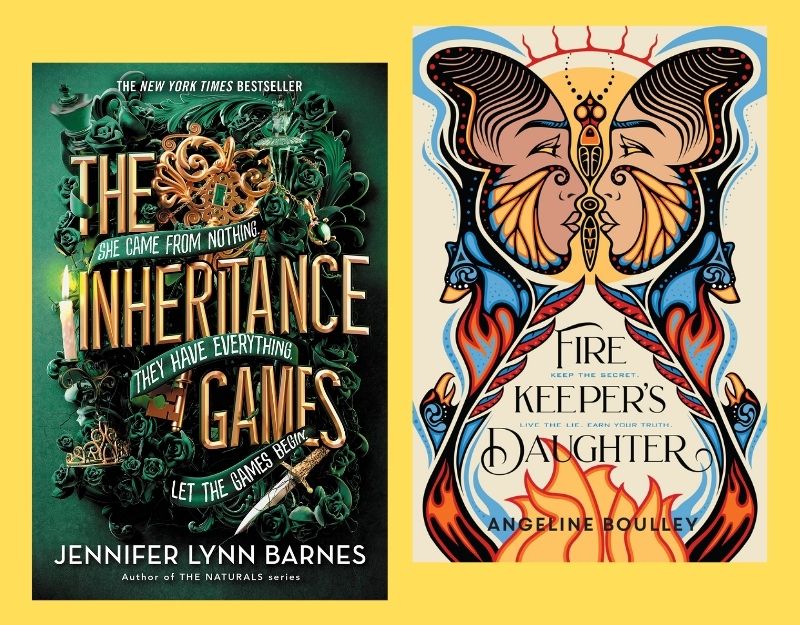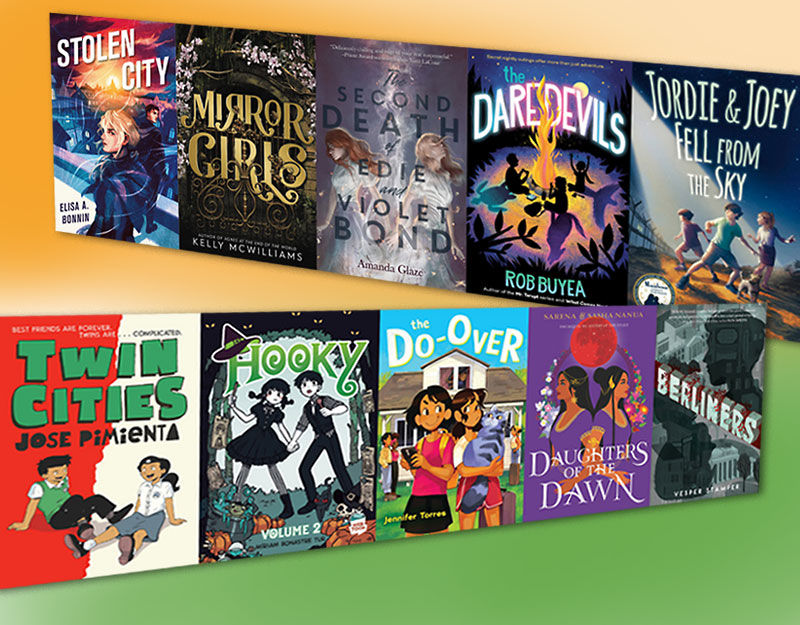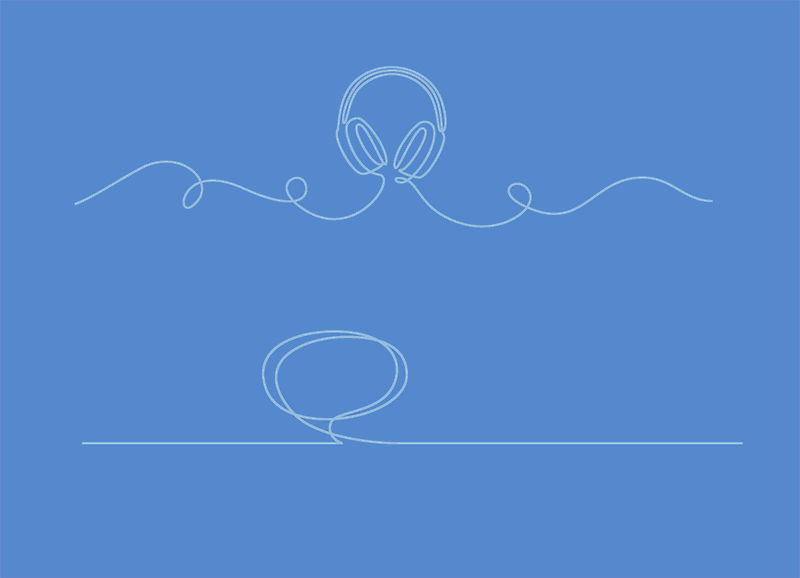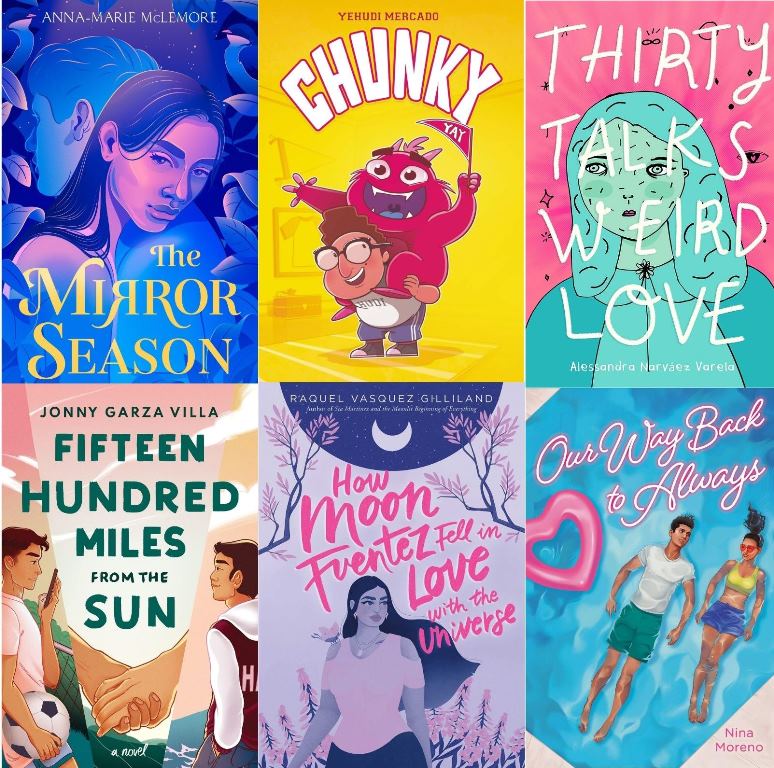What It’s Like for a Girl: How Monstrous Beauty by Elizabeth Fama made me think about the politics of sexuality in the life of girls
Monstrous Beauty is the story of an older teen named Hester. Hester lives in Massachusetts, a place still rich with history and legend and some believe, magic. Hester is a lover of history with a scientific bent, she does not believe in magic. A few days after Hester was born, her mother died. The same thing has happened to every woman in her lineage as far back as they can tell. This knowledge has made Hester take a vow that she will not allow herself to fall in love so that she is not tempted to marry, bear a child and suffer the same fate as her ancestors. In an alternating storyline, we hear the story of passionate lovers Syrenka and Ezra. With each turning page it is clear that their stories intersect in ways that Hester could never have imagined.
While reading Monstrous Beauty, I had a variety of reactions and immediately closed the book upon finishing to write a post about an aspect that I found both true and troubling. Monstrous Beauty is many things: it is a richly dark gothic tale that slowly peels back the layers of a centuries old mystery and helps our young heroine, Hester, break a family curse. The building blocks of the story are put together so incredibly well, almost flawlessly. It is a mastercraft lesson in storytelling. I give it a 4.5 out of 5 stars.
ADVERTISEMENT
ADVERTISEMENT
But there is one aspect of the story that I found deeply troubling: there is some incredibly disturbing sexual brutality, both outright and implied. In fact, in the first 100 pages Hester is approached and put in sexually threatening situations twice. Syrenka herself is raped in a moment that becomes the catalyst for our story. I found this unnerving. And then I spent some time really thinking about the implications of what life is like for a girl and how it is depicted in Monstrous Beauty. So let’s take a quick journey through my life, shall we . . .
As a Middle School and High School student, I can vividly recall three separate instances when a fellow male student – whom I did not even know – purposely reached out and grabbed my breast while walking the hallway and changing classes. I can also recall my best friend’s father once doing the same (and now you know why we were no longer friends – it wasn’t you, it was your dad.)
Twice in high school I went out with friends, with the clear knowledge that we were indeed nothing but friends, and at some point in the evening the drove me to the place called “lover’s lane” where people went to make out. Nothing happened, but I had found myself in a very unsafe position with someone who was supposed to be my friend. Because we were alone in the car, I realized that they were in fact in a position of power.
In college, I went with a group of students to a local cafe to study. A male friend from the group was driving me when he went past the cafe and drove me down an empty street in the middle of the desert. This was definitely one of the most terrifying times of my life. In the end nothing happened, but he had all the power and control in this moment and I had never been so unsafe. The conversation clearly indicated what his intentions were and I was just lucky that he didn’t have a weapon or chose not to use it.
Then there are all the times when you are simply walking from point A to point B, often in broad daylight, and men say filthy, lecherous things to you. A couple of months ago a car of men drove by and screamed what they wanted to do to me as I played outside WITH MY CHILDREN.
Just last month I was visiting my dad when I went for a walk. As I walked I passed a young man waiting at the bus stop, he got up and started to follow me. At this point in my life I have learned what this life is like for a girl and I had my phone so I called and my people came out of the house to make sure I was safe. As my family called me back to the house, the man waited a beat and then went back and waited for the bus. Thankfully, my family was there to keep me safe. And it was obvious that he was willing to forgo his bus ride for whatever nefarious plans he had upon seeing me. This is another instance that could have gone much differently then it did, and I was terrified.
I have shared before, but there was even a time when I was continually sexually harassed by a teenage boy that was coming to my programs. When we met with the boy and his father, the father said I should take it as a compliment. There was never any acknowldgement of the innapropriateness of his behavior or how he failed to stop after having been told several times to stop. These are the types of messages that our boys are being given – women should learn to take a compliment and they are ungrateful bitches when they don’t.
Statistics indicate that 1 out of 3 girls/women will be the subject of some type of sexual abuse/victimization – often before they even reach the age of 18. If you include catcalls, unwanted sexual advances and off color remarks – all girls will. Unfortunately, I fear that for a lot of teenage girls, Hester’s experience is in fact way too common.
Earlier this week, a Fox News correspondent made the comment on air that women who find themselves the victims of violence “should make better decisions.” We continue to shift the blame onto women instead of shouting from the rooftops, Hey guys – it’s not okay to 1) touch a woman (another person really) without their explicit consent, 2) there are in fact situations in which a person can not realistically give consent and they include being under the influence and when there is an imbalance of power, to name just a few and 3) you – the aggressor – are ultimately responsible for your actions. I can’t make you rape me. Not by wearing the wrong clothes. Not by walking in the wrong place. Not by saying the wrong things. Not by being in a night club. Not by being your friend, or your girlfriend, or even your wife. You and you alone make those choices and they are your responsibility to bear.
On Twitter, I follow several people who are very active in a campaign to stop Street Harassment. Street Harassment occurs when men yell out or whistle to women who are simply walking by. Often, it is a group of men and these are terrifying situations that can easily escalate. Again, there is an imbalance of power. More importantly, women ARE in fact people and they deserve the courtesy and respect of being able to walk down the street without being harrassed, objectified, and intimidated. (Side note: the objectification of women would constitute a whole other group of posts.)
ADVERTISEMENT
ADVERTISEMENT
As I continued reading Monstrous Beauty, I came to appreciate it for the rich story that it presented, the quality of the writing, and the way that Fama was able to juggle two story lines and weave them together in a way that followed through. But I also thought, I want people to be reading and discussing this book because we should be talking about the sexual politics of our world and what it is like for a girl. What happens in the book is unnerving and off putting – and it should be. That is the power of story, sometimes it holds a mirror up to truth and makes us think about things we prefer to sweep under the rug. I don’t know of a single female in my life who hasn’t in some way been the victim – multiple times – of some type of sexual harassment, intimidation or abuse. We can’t still be thinking that is okay in the 21st century. Thank you Elizabeth Fama for highlighting how little some of the politics of sex have changed since the time when Syrenka lived.
One final note: In the scene I opened this post with Hester is working her job at a Colonial America tourist resort. Her job is to play a very specific role and remain in character at all times. When approached by the group of boys in threatening ways, Hester stays in character and takes the opportunity to leave the cottage immediately under the pretense that a neighbor is expecting her to bring eggs. She gets herself out of Dodge. I thought this was an incredibly smart way for Hester to handle the situation because had she responded by verbally attacking the group, they more often than not will respond in anger and use it as an excuse to follow through on their threats – and then they will claim that bitch deserved it because she was disrespecting them. Because somehow they can disrespect and threaten her, but she doesn’t have the right to defend herself. I believe that this was a very realistic way for Hester to handle the situation and I applaud her intelligence.
Last night on Twitter I asked for help putting together a reading list of YA Titles that discuss sexual intimidation, violence and abuse. These are some of the titles that were recommended:
What Happens Next by Colleen Clayton
Live Through This by Mindi Scott
Identical by Ellen Hopkins
Pieces of Us by Margie Gelbwasser
The Mockinbirds by Daisy Whitney
Uses for Boys by Erica Lorraine Schedit
Flawed by Kate Avelynn
13 Reasons Why by Jay Asher
But I Love Hime by Amanda Grace
Stay by Deb Caletti
Some Girls Are by Courtney Summers
Boy Toy by Barry Lyga
Something Happened by Joseph Heller
Leverage by Joshua C. Cohen
Just Listen by Sarah Dessen
Such a Pretty Girl by Laura Weiss
Not That Kind of Girl by Siobhan Vivian
The List by Siobhan Vivian
Bitter End by Jennifer Brown
Empty by K M Walton
Speak by Laurie Halse Anderson
Living Dead Girl by Elizabeth Scott
Exposed by Susan Vaught
I also asked for titles where a girl was put in a compromising sexual position, stood up for herself and the situation was resolved without harm coming to the girl. The Twitterverse could not come up with very many titles. This is what they came up with:
Knee Deep by Jolene Perry
Easy by Tammar Webber
Raw Blue by Kristy Eager
13 Little Blue Envelopes by Maureen Johnson
A note about boys: obviously sexual violence can and does happen to boys and it is just as horrific of a crime.
More discussion:
Force: Upsetting the Culture of Rape
Teach “don’t rape” instead of “don’t get raped”
Stop Street Harassment
Filed under: Abuse, Elizabeth Fama, Monstrous Beauty, Rape, Street Harassment
About Karen Jensen, MLS
Karen Jensen has been a Teen Services Librarian for almost 30 years. She created TLT in 2011 and is the co-editor of The Whole Library Handbook: Teen Services with Heather Booth (ALA Editions, 2014).
ADVERTISEMENT
ADVERTISEMENT
SLJ Blog Network
Name That LEGO Book Cover! (#53)
Cover Reveal and Q&A: The One and Only Googoosh with Azadeh Westergaard
Exclusive: Vol. 2 of The Weirn Books Is Coming in October | News
Fighting Public School Book Bans with the Civil Rights Act
ADVERTISEMENT









LOVE everything here. Awesome.
This reminds me of Gavin de Becker's The Gift of Fear. He talks about how men and women truly live in two different worlds, that if you ask a man when he last felt physically threatened or in fear for his safety, most men, if they can even come up with an answer, think of incidents in middle school or maybe high school. Ask a woman the same question and she'll say, “Two days ago, when I was leaving work late…” or “Last night, when I came out of the store alone, there was this guy….” I just found that to be so staggeringly true and his point is that it creates an undercurrent in women's lives that men not only don't typically understand, but of which they're not even aware. Scary stuff and important to talk to girls about….
You are spot on about everything here. But you've neglected to mention one thing. As most women have accepted, to some degree, objectification, others have come not only to accept it, but to encourage it, as a form of recognition. You or I might be offended by those catcalls, but younger women, especially, see them as acceptance or even worship. They're wrong in understanding the psychology behind being called a “hot bitch” or whatever. THAT is what we must change. The idea that a woman's worth is measured by male lust has become too commonplace, and media body worship doesn't help. How do we allow our worth to be measured by our intellect? Education! Always, we must strive to educate our children that respect is primary.
I'm out of town, with frustrating access to Internet, but I just want to say that I'm so glad you brought up this discussion, Karen. Also, the 1/3 number seems low to me. If you were to tell girls that unwanted touching or calling of any sort constituted sexual aggression, I'd wager that every young woman (3/3) has experienced that. Probably a significant number have had sexual encounters that they didn't feel in control of, ranging from unwanted touches or groping to pressure to have sex. Hester's experiences seemed authentic and universal to me, which is why I included them. In particular, a feature of these interactions is that the victim is put in the unjust position of having to decide on the spot how to extricate herself safely–how to appropriately respond to unwanted advances. Finally, I want to point out that Hester's experiences also include healthy male relationships: she has a genuinely kind and respectful friend (Peter), an awesome dad and brother, and her first sexual experience (spoilers!) is orchestrated by her, on her terms.
Thank you so much for your comment.
I have not read The Gift of Fear, by I read his parenting version of this book Protecting the Gift and I highly recommend it to parents everywhere (or anyone that works with kids and teens).
Ellen, thank you so much for your comment and for raising an important point. We do send an incredibly dangerous message to our youth (and even our adults) that our sense of self – our validation and acceptance – comes from outside instead of within. This sets up unattainable standards and deep emotional dependence. However one may feel about the Bible, it gets one important thing right when it says we must “love others as we love ourself”. The underlying message here is that before we can love others, we must love ourselves and be at peace with who we are. Unhealthy people love in unhealthy ways. It saddens me to see the teenagers I work with so desperately craving the validation of a man because the truth is, because it doesn't satisfy the soul they will never get enough of it. Our sons and daugthers must learn to like who they are.
You raise some good points, and my worry in doing this piece was that people would think that this is what Monstrous Beauty is about, which does it a great injustice. So I tried to clarify in my piece that these are some scenes that happened and this is what they made me think about, but that the book as a whole is a beautiful, slowly unfolding mystery. I love how you mention the injustice of trying to figure out how to safely get herself out of a situation that she should never have been placed in to begin with. And you are right, there are some wonderful male characters in the story that I didn't mention in the paradigm of this discussion. I should probably make it a point to write an actual review of the book soon. Thank you for joining the discussion. It is wonderful to hear the author's point of view.
It is my great wish that every teenager and young adult could see this. Not only should young women, or any woman for that matter, know that this victimization is no fault of theirs, but men and young men should know that they must take responsibility for their actions. Respect must be given on both ends.
This is a very powerful post and one that I can imagine was difficult to write. Thank you so much for opening up about your own experiences in harassment. I work on a college campus and every two months we receive e-mails about a student being assaulted on campus. We do need to have a better way of discussing what needs to be done about our culture and how it is not okay to be harassed.
Just a quick note, I think the SOMETHING HAPPENED you mention is not the one by Joseph Heller (author of CATCH 22) but the one by Greg Logsted.
Ugh. I love this post. Ditto, ditto, ditto.
Out of curiosity, can anyone think of good YA books in which male characters grapple with the consequences of the sexual violence or unwanted advances they perpetrate? I'm drawing a blank. Also, I agree wholeheartedly with everything said here.
Breathing Underwater by Alex Flinn!
Karen, you are awesome!!
Great post!!!
Leslie
People don't change unless you make them change. Guys will only stop acting like jerks when they are no longer rewarded for it. Currently in our culture, the way you look is more important than the way you treat a woman. I would love to see this change, but I, like everyone else, have no idea what to do to fix this.
When I was in elementary school, I wore a uniform and followed home from school by a man in a car. My mother shouted at him as he continued to leer, screaming that she had his license number and better not ever see him again.
I was eleven.
Rookie Mag has a post about street harassment that grew out of a conversation — it's in the book too, but you can read it online (http://rookiemag.com/2012/05/it-happens-all-the-time/). What really floored me in the comments wasn't that this had happened to so many young girls and women but that men have NO IDEA how prevalent it is; there are comments from guys who are completely shocked about this.
Thank you for writing this — I really hope this conversation continues loud and clear and changes things.
I know this is an older thread, but I just discovered it from this article in School Library Journal: http://www.slj.com/2014/03/programs/karen-jensen-is-leading-the-dialogue-about-sexual-violence-in-ya-lit-and-in-real-life/
I wanted to add two titles to the list:
Target by Kathleen Jeffrie Johnson focuses on a teenage boy who lives through a brutal sexual assault.
Her novel Gone is also similar in theme to Barry Lyga's Boy Toy, but I think Lyga's digs deeper into the psyche of a young man who goes through such an experience.
I would also add “Breathing Underwater” by Alex Flinn. Though it is from the abusers P.O.V, I find it important to point out that through the internal dialogue, it is made clear that the violence had everything to do with the abuser and NOT the abused. Which I find important in smashing those, “she asked for it” excuses and mindsets.